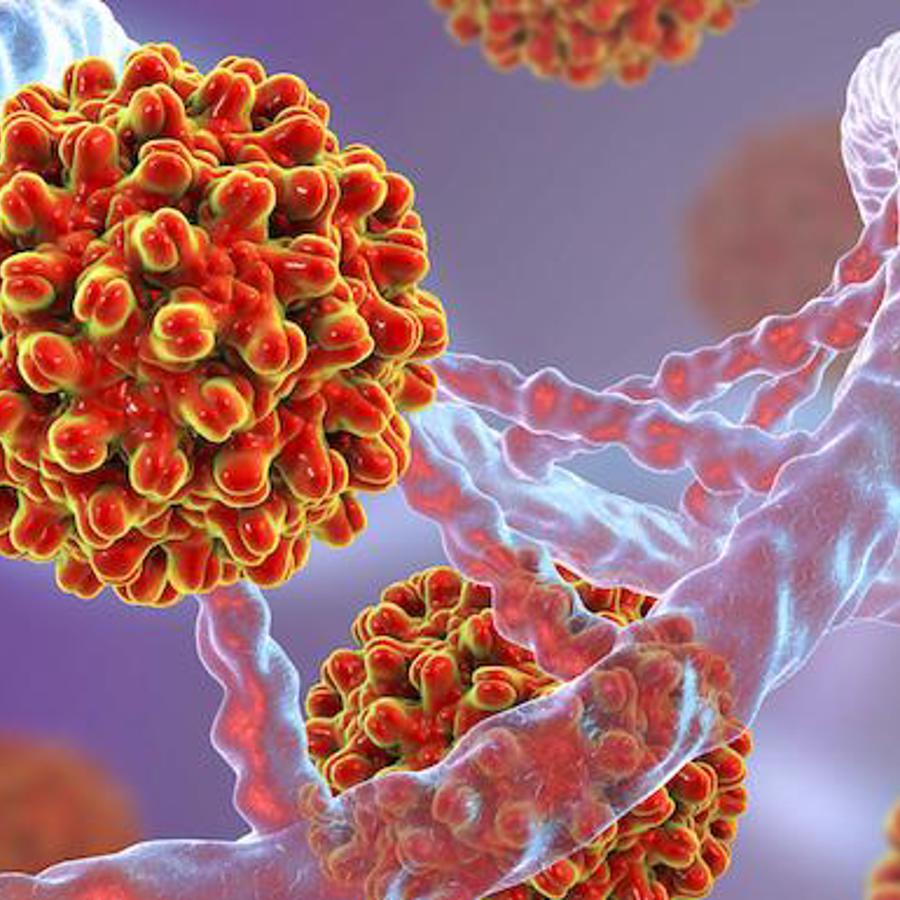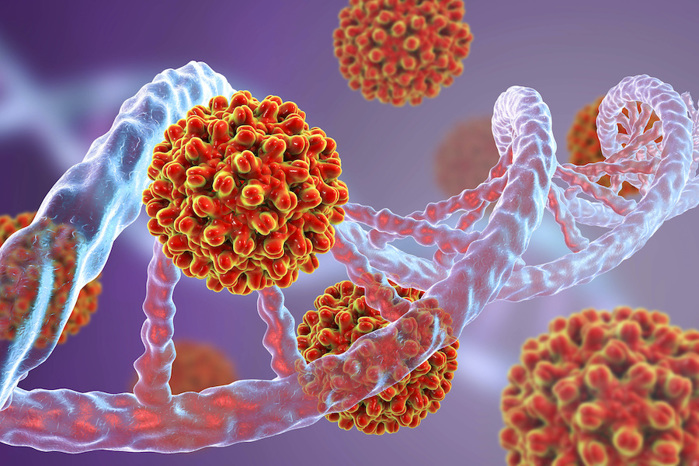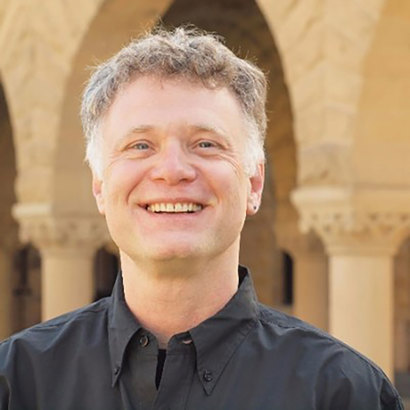
Would everyone develop cancer if they lived long enough?
August 12, 2005

A curious adult from California asks:
"If we live long enough, would everyone eventually develop some form of cancer?"
I love this question! I think the answer is “probably, maybe” (very satisfying, huh?). To understand why I'm waffling, I need to explain some current theories on cancer and aging and how the two might be related.
Cancer is caused by DNA mutations
One of the most important ideas in cancer research is the two hit hypothesis. The underlying idea is that cancer is caused by changes in our DNA called mutations.
These DNA changes affect certain genes called oncogenes. When these genes get DNA mutations in them, cancer develops.
But you need changes in both copies of a gene for cancer to develop — this is where the two hits come in. (Remember, we have two copies of most of our genes — one from mom and one from dad.) Normally, one mutation isn't enough.
Unless you start out with one already. This is what happens to people who have certain cancers that run in their family. Let's say breast cancer runs in your family. It’s possible that one of two copies of a gene like BRCA1 or BRCA2 may already have a DNA mutation.
People with a mutation or DNA change in one copy of their BRCA1 gene only need to have the other copy get a DNA change to get breast cancer. And getting a DNA change in only one copy of a gene is much more likely than getting it in both copies.
In fact, this reasoning is what led to the two hit hypothesis. A man named Alfred Knudson compared the rates of cancers that ran in a family vs. cancers that appear out of nowhere.1
The rates fit perfectly with the idea that if a cancer runs in the family, then one copy of an oncogene already has a mutation. If it doesn't run in the family, then you need to develop two hits -- one in each copy of the same gene.

These DNA changes occur randomly and are a consequence of being alive. Things like UV light from the sun, chemicals in the environment, or even eating can cause mutations. Also, when you copy DNA over and over to get from a single cell to 50 trillion cells, you're bound to mess up every now and then.
So if we assume some sort of constant rate of DNA change, then if we live longer, we'll get more mutations. And eventually everyone will get cancer. As long as whatever we've done doesn't affect how quickly we build up DNA changes, that is.
Cancer and Aging
And this gets us into the theories of aging. Why do we get old anyway? There are two competing theories.
In one, we are programmed to age and die by a certain time. This makes some kind of sense when we think about, for example, mice and people.
Mice live a couple of years; we live 75 or so. Why is this? Some people believe the programming found in our genes is responsible. This means that to live longer, we would need to reprogram our cells. But we would still get DNA mutations as we age.
In the second theory, we age because our DNA gets beat up by our environment over time. Important genes are damaged leading to aging. Eventually, we have too much damage and die. If this is true, then people who have fewer DNA mutations will live longer and possibly be at a lower risk of cancer.
The reality is probably a combination of these two models. This makes it hard to estimate how our risk of cancer will increase as we age.
But statistically speaking, if we live long enough, we'll probably all get cancer. Nice to end on a rosy note, huh? Remember, they'll be working on trying to treat and cure cancers better as well so all won't be lost!

Author: Dr. Barry Starr
Barry served as The Tech Geneticist from 2002-2018. He founded Ask-a-Geneticist, answered thousands of questions submitted by people from all around the world, and oversaw and edited all articles published during his tenure. AAG is part of the Stanford at The Tech program, which brings Stanford scientists to The Tech to answer questions for this site, as well as to run science activities with visitors at The Tech Interactive in downtown San Jose.
 Skip Navigation
Skip Navigation
